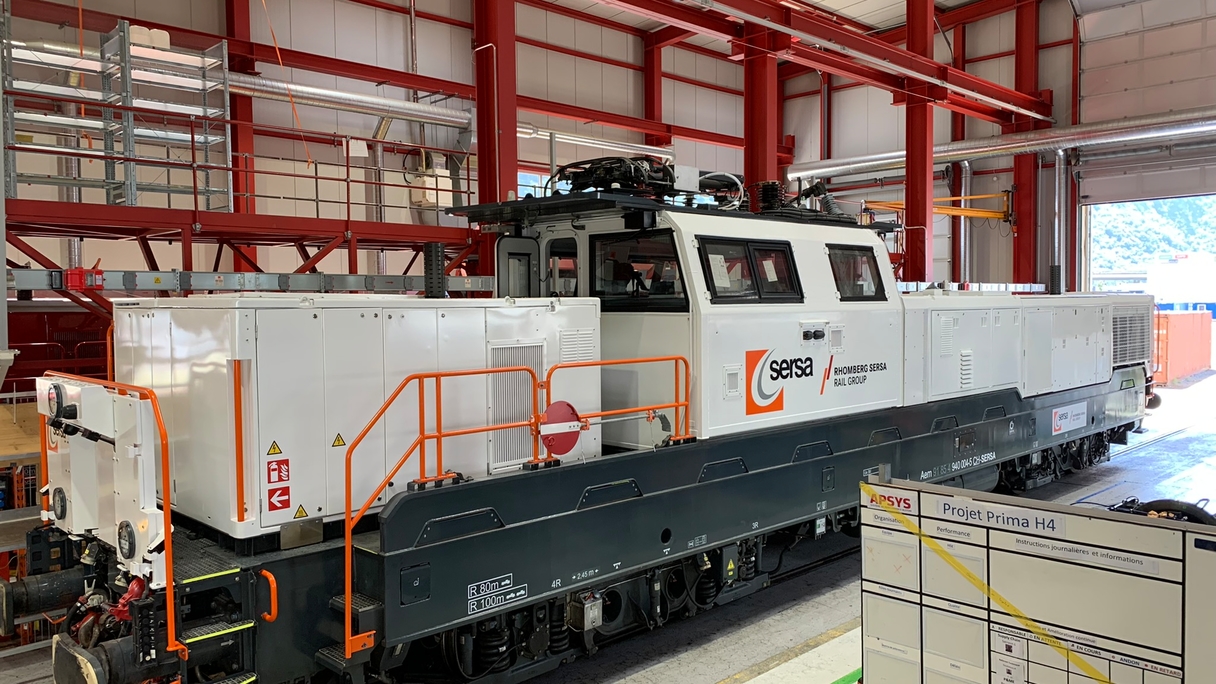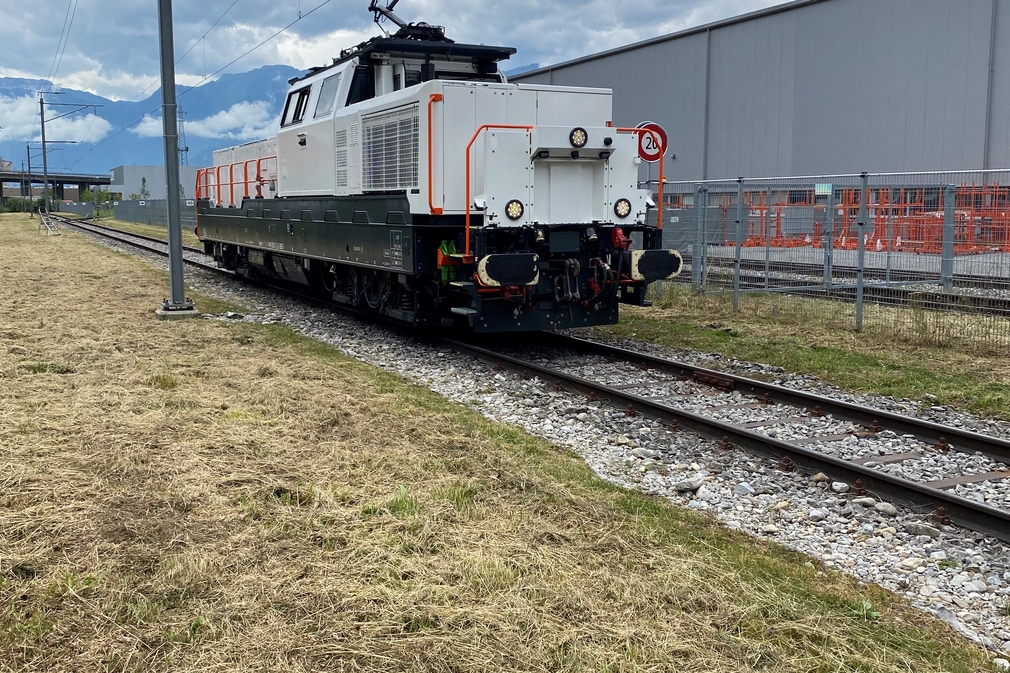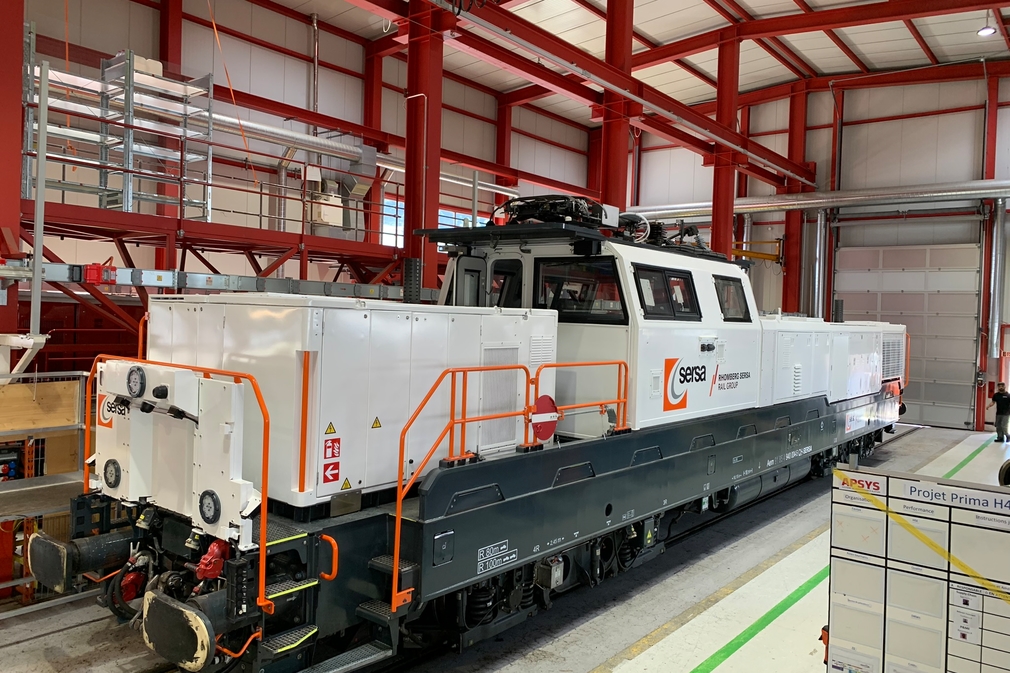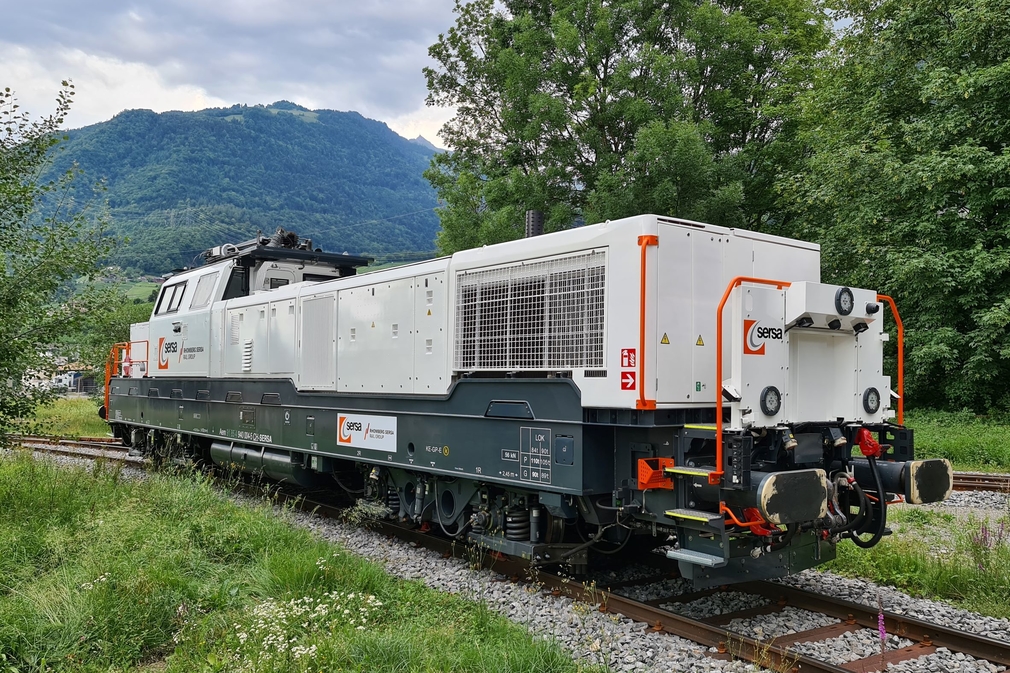Rhomberg Sersa Rail Group is investing in sustainably run, bimodal locomotives
With its purchase around three years ago of two track construction machines featuring E³ technology, the Rhomberg Sersa Rail Group laid the foundations for a sustainably run machine pool. The next to arrive are locomotives with environmentally-friendly drive trains.
Sersa Switzerland was a very early pioneer in the provision of diesel locomotives for customer deployments. While this primarily began with locomotives deployed in construction applications, these are now increasingly used in industrial sidings operations and for other rail transport companies. In addition, the fleet was augmented with high-performance Type Re 420 electric locomotives. From a very early stage, Sersa Switzerland focussed on deploying locomotives in the most sustainable way possible. As one example, its diesel locomotives have long been fitted with diesel particle filters. Professional maintenance work carried out in the company’s own workshops also means that the locomotives have the lowest possible emissions and are deployed as efficiently as possible.
By the end of 2022, five Alstom Prima H4 locomotives (Aem 940) will augment Sersa Switzerland's fleet. They will be deployed in freight transport and construction site logistics applications. All of the new locomotives are equipped with a bimodal drive system, meaning they can be powered via an environmentally-friendly contact wire. If none such exists, they can switch to modern designed diesel engines. This is how Rhomberg Sersa Rail Group is not only contributing to achieving its own ambitious CO2 reduction targets, it is also helping its customers to meet their own sustainability goals. It also enables the realisation of innovative and reliable rail transport concepts.
Alstom Prima H4 locomotives setting new benchmarks
The Alstom Prima H4 locomotive platform is based on a modular serial drive train. The bimodal drive reduces the machine's fuel consumption by up to 50% so lowering its environmentally harmful emissions by 50%, too. “Bimodal” means that these locomotives can be electrically driven via contact wire with approx. 2,000 kW of power, or if no contact wire is installed, via the modern diesel engine delivering approx. 900 kW of power. So the Alstom Prima H4 is setting new benchmarks in terms of emissions efficiency. In future, a total of five H4 Bi-Mode locomotives will be added to the machine pool of Sersa Switzerland. They will be deployed in the environmentally-friendly supply and removal of material to and from construction sites, as well as the rapid transport of track building machinery and innovative “last mile” freight transport solutions.
The H4 Bi-Mode facilitates the following logistics concepts, for example:
- Rapid transfer of track construction machines from one construction site to the next. This ensures the track construction machines remain highly available. The diesel engine means that the track construction machines can also be collected from non-electrified storage sidings, and transported directly to a construction site where the contact wire has been deactivated for safety reasons. The locomotive can be run on environmentally-friendly electric power between these points.
- A freight train cannot be loaded at a loading terminal not equipped with a contact wire. The H4 Bi-Mode locomotive brings the contact-wire powered trained quickly and directly to a railway network junction, from where the freight wagons can be transported onwards with electric-powered main-line locomotives.
Factbox Alstom Prima H4 Bi-Mode
- Electric-powered drive via contact wire; Caterpillar diesel engine
- 120 km/h maximum speed
- 18.75 m long over buffers
- Traction power: 2,000 kW in electric model via contact wire; approx. 900 kW via diesel engine
- Weight: 84 tonnes (90 tonnes with ballasting)
- Multi-traction option
- 3,000-litre tank
With its deployment of H4 Bi-Mode locomotives, Rhomberg Sersa Rail Group is setting a new milestone in the efficient, rail-borne construction site logistics, and a high-performance, sustainable main-line freight operation.









